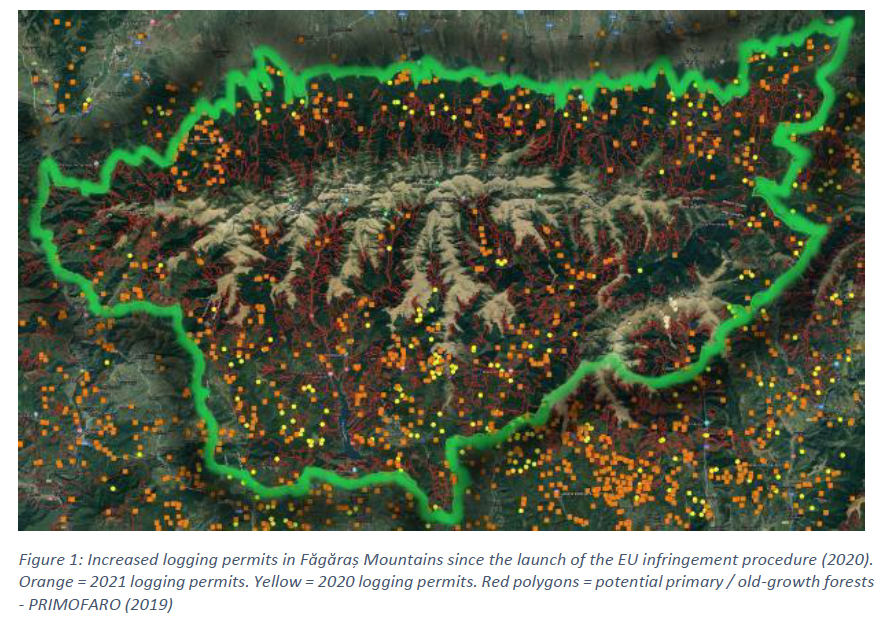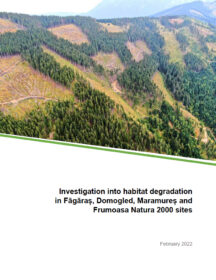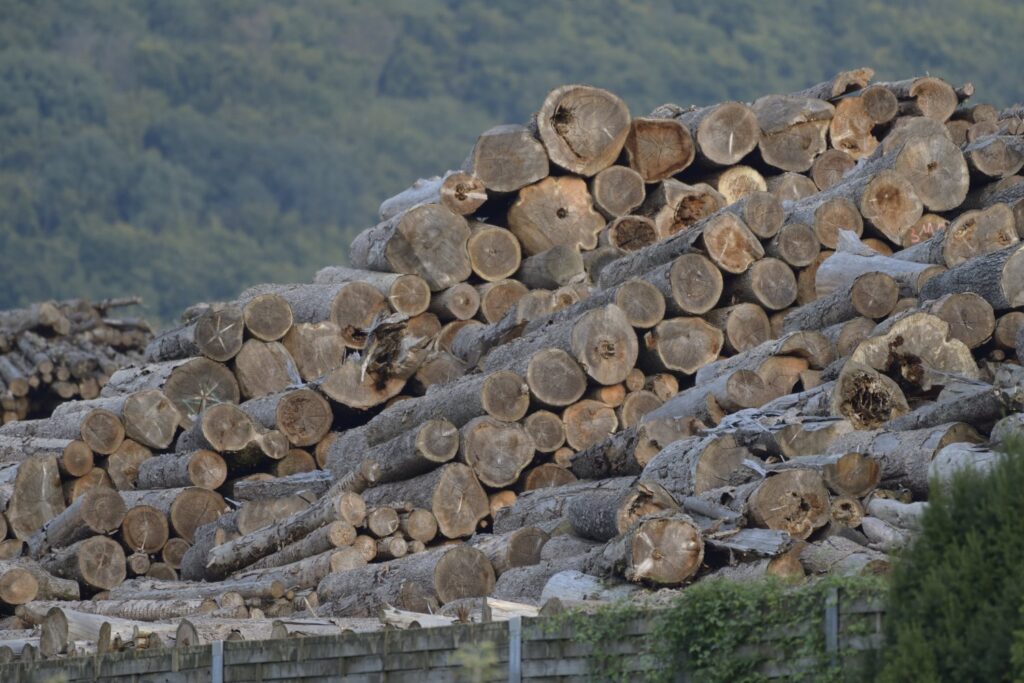New data show that logging of the EU’s last large primary and old-growth forests in Romania is continuing unabated
The data show that illegal logging has actually increased in one of Europe’s oldest and precious forests in Romania in the last two years, despite legal action by the European Commission against the Romanian state to combat it
The report, released by the NGOs Agent Green, ClientEarth and EuroNatur, identifies that the areas most affected by these illegal activities are the highly valuable forests of the Fagaras Mountains. Logging permits in these areas have increased drastically between 2020 to 2021, which has led to a significant deterioration of valuable forest ecosystems.
Following a series of complaints submitted by the environmental organisations, the European Commission launched infringement proceedings against the Romanian state in 2020, following it up with a final warning later that same year.
As the Romanian state failed to act, the European Commission issued later that same year, a reasoned opinion –a final call for the Romanian state to address the problem. This was accompanied by a warning to send the case to the Court of Justice of the European Union (CJEU) if Romania did not take immediate action within the next four weeks. However, as the new report clearly shows, almost two years have passed and Romania has yet to comply with the Commission’s demand.
The environmental groups are calling on the European Commission to act immediately and refer the case to the CJEU – building on the ruling from the EU’s highest court in 2018 against the massive logging of Poland’s EU protected Bialowieza Forest.
“Unfortunately, nothing good has happened for forests since the commission initiated legal action,” said Gabriel Paun, CEO of the Romanian conservation organisation Agent Green. “On the contrary, our field investigations backed by data analysis show that in many precious native forests, logging has even massively increased compared to the time before the EU proceedings. We have submitted the evidence to the European Commission and expect a more serious course of this infringement towards sanctioning the Romanian state’s lack of actions,” added Paun.
Despite discussions between Romania and the Commission, the Member State has so far failed to take any effective steps to halt the destruction of its protected natural forests in Natura 2000 areas.
“The Romanian authorities seem to fool the European Commission. We call on the EU to urgently ensure enforcement of existing EU legislation in Romania. Anything else would be a fatal sign of weakness, not only towards Romania, but also towards other EU countries. Ultimately, Brussels’ inaction regarding the continued forest destruction in Romania jeopardizes the entire EU Biodiversity Strategy and the Green Deal,” says Annette Spangenberg, Head of Nature Conservation at EuroNatur.
ClientEarth wildlife and habitats legal expert Agata Szafraniuk says: “Romania’s persistent failure to act means the situation in Romanian forests has gone from bad to worse. Despite the European Commission’s warnings, Romania continues to breach EU nature laws by approving logging permits in protected areas of its forests without assessing the impact these activities will have on nature and wildlife. If the Commission does not escalate Romania’s clear disregard of EU nature laws before the EU’s highest court, the future of these important forests looks dire.”




